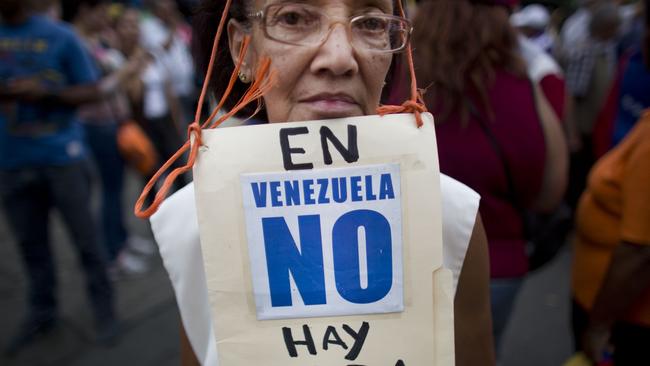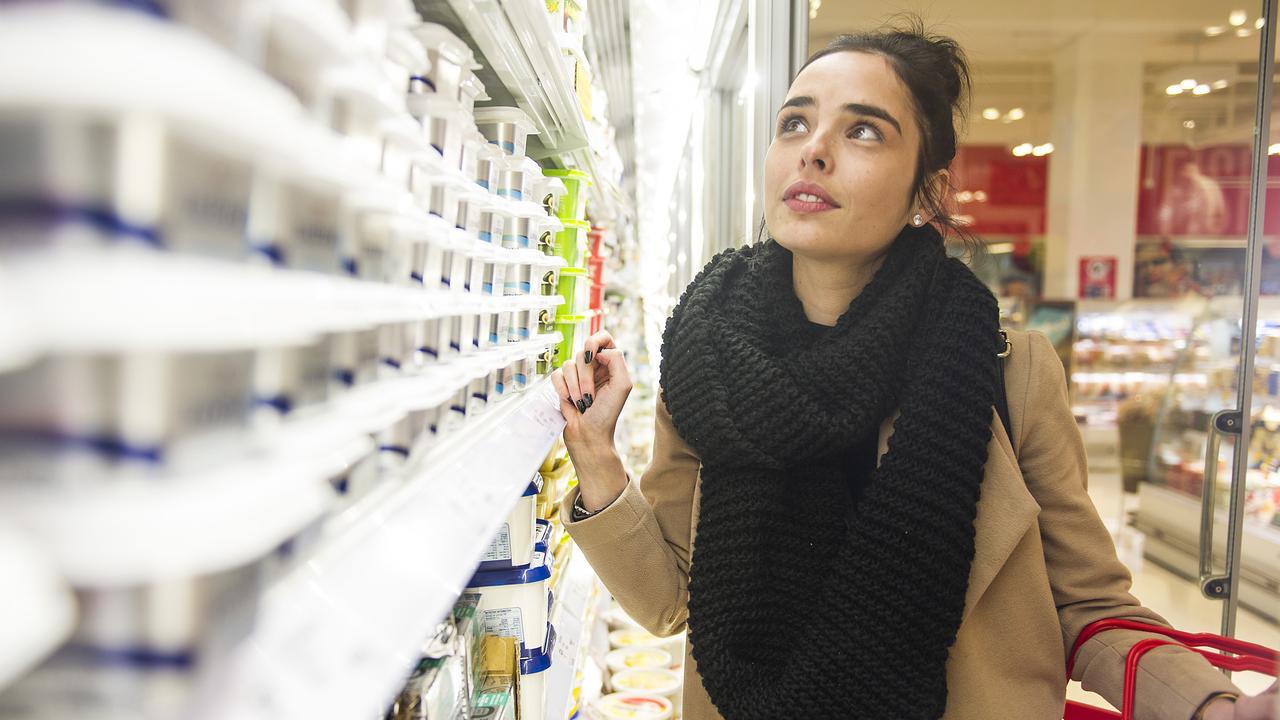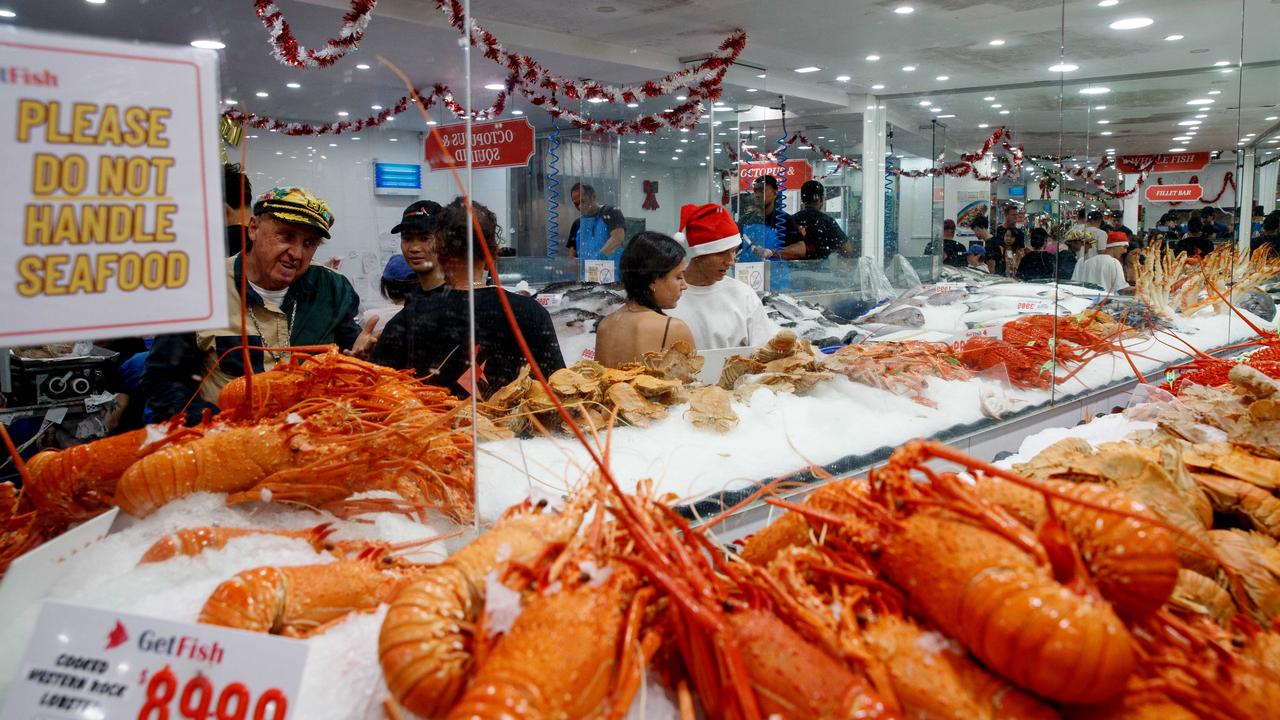Australian unions pledge support for ‘democratically elected’ socialist Venezuelan dictatorship
IT’S the world’s newest dictatorship, where starving citizens are eating dogs to survive — but these Aussies still support the regime.

Economy
Don't miss out on the headlines from Economy. Followed categories will be added to My News.
TWO of Australia’s major trade unions have pledged their support and “resolute solidarity” with the murderous socialist dictatorship of Venezuela.
At a July 26 meeting of the Victorian branch of the Construction Forestry Mining Energy Union, Australia’s third-largest and most powerful union, members resolved to “pledge our support with the people of Venezuela and their Bolivarian Revolution Socialist Government”.
“This meeting notes the Venezuelan government is a democratically elected government and we reject the intervention of the US and other capitalist powers in Venezuela,” the resolution said.
“We call on the Australian labour movement to express solidarity with workers in Venezuela and against fascist and violent gangs. We call on the Australian government to dissociate itself with the US intervention and to work towards a peaceful resolution to this crisis in Venezuela.”
A day earlier, the Sydney branch of the Maritime Union of Australia resolved to “pledge our resolute solidarity with the people of Venezuela and their Bolivarian Revolution”.
“The MUA Sydney branch resolves ... to reject the intervention of the US and other capitalist powers in Venezuela,” the resolution said. “To oppose the attacks by violent, fascist gangs of the right-wing opposition in that country.
“To call on the Australian labour movement to express solidarity with the Venezuelan people, and against right-wing attacks on Venezuelan democracy.
“To call on the government and parliament of Australia to dissociate itself from US intervention in Venezuela’s internal affairs, and to express full support for a peaceful resolution of the current crisis in Venezuela.”
The impoverished South American nation — wracked by an economic crisis marked by hyperinflation, food and medicine shortages, starvation, skyrocketing infant mortality, civil unrest and street violence — has endured months of anti-government protests in which at least 120 people have been killed.
President Nicolas Maduro, who has overseen the collapse of the oil-rich nation since taking over from Hugo Chavez in 2013, on Sunday held an election for a constitutional super-body, which has since been hit with claims of vote tampering.
Last month, more than seven million Venezuelans took part in an unofficial plebiscite overwhelmingly opposing the proposed Constituent Assembly made up of government supporters
Nikki Haley, US Ambassador to the United Nations, tweeted: “Maduro’s sham election is another step toward dictatorship. We won’t accept an illegit govt. The Venezuelan ppl & democracy will prevail.” The US State Department vowed “strong and swift actions” in response.
Maduro’s sham election is another step toward dictatorship. We won't accept an illegit govt. The Venezuelan ppl & democracy will prevail.
— Nikki Haley (@nikkihaley) July 30, 2017
On Monday, Amnesty International warned of a “dramatic increase in illegal use of force, scores of arbitrary detentions and the killing of at least 10 people”, including teenagers, over the weekend.
“President Maduro and his government appear to be living in a parallel universe,” Erika Guevara-Rosas, Americas Director at Amnesty International, said in a statement. “Immediate action must be taken to put an end to arbitrary detentions, killings and other serious human rights violations.”
In May, Australian human rights groups called for Bondi student Lucia Rodriguez to be deported over her family’s prominent role in the Venezuelan government. In a petition to Immigration Minister Peter Dutton, the activists called for Ms Rodriguez’s student visa to be cancelled.
Earlier this week, Venezuela’s most high-profile opposition figures were seized from their homes by government forces, including opposition leader Leopoldo Lopez, whose wife posted a video on Twitter of her husband being led away at gunpoint.
12:27 de la madrugada: Momento en el que la dictadura secuestra a Leopoldo en mi casa. No lo van a doblegar! pic.twitter.com/0EdlQvEGXS
— Lilian Tintori (@liliantintori) August 1, 2017
“They’ve just taken Leopoldo from the house,” Lilian Tintori wrote on Twitter account. “We don’t know where he is, or where they are taking him.”
Tamara Taraciuk Broner, Senior Americas Researcher with Human Rights Watch, has warned Venezuela is transforming into a “police state”, with hundreds of thousands now fleeing into neighbouring countries to escape persecution.
Not-for-profit group Venezuelan People Forum estimates about there are about 400 political prisoners in the country, and says military courts have prosecuted more than 460 civilians — over whom they have no jurisdiction — since April.
“The Maduro administration has taken advantage of its monopoly on power to arrest and prosecute critics, to disqualify opponents from running for office — and jail them for good measure — to detain or expel journalists, and to take TV channels off the air,” Broner wrote.
“Venezuelan security forces, together with armed pro-government groups, have brutally repressed massive anti-government protests, killing dozens, injuring hundreds and detaining thousands.”
Harvard professor Ricardo Hausmann, Venezuela’s former minister of planning and former chief economist of the Inter-American Development Bank, has described the collapse of the country’s economy as “unprecedented”.
“The minimum wage — which in Venezuela is also the income of the median worker, owing to the large share of minimum-wage earners — declined by 75 per cent (in constant prices) from May 2012 to May 2017,” he wrote. “Measured in dollars at the black-market exchange rate, it declined by 88 per cent, from $US295 per month to just $US36.”
The food crisis has become so bad, some Venezuelans have resorted to eating dogs, cats, donkeys, and even protected species including pink flamingoes and giant anteaters, according to biologists and waste disposal workers.
The union resolutions were published online by the Australia-Venezuela Solidarity Network, which in 2007 invited Chavez to Australia in a letter signed by leading unions, Labor and Greens politicians, and journalists including ABC presenter Phillip Adams and filmmaker John Pilger.
The CFMEU, which has about 120,000 members, and the MUA, which has about 13,000 members, did not respond to requests for comment. The Australian Council of Trade Unions directed inquiries back to the CFMEU and MUA.
Data from the Australian Bureau of Statistics earlier this year showed union membership across the workforce had fallen to a record low, with just 9.3 per cent of private sector workers now belonging to a union, compared with 11.1 per cent two years ago. Public sector union membership declined slightly to 38 per cent over the same period.
Originally published as Australian unions pledge support for ‘democratically elected’ socialist Venezuelan dictatorship



